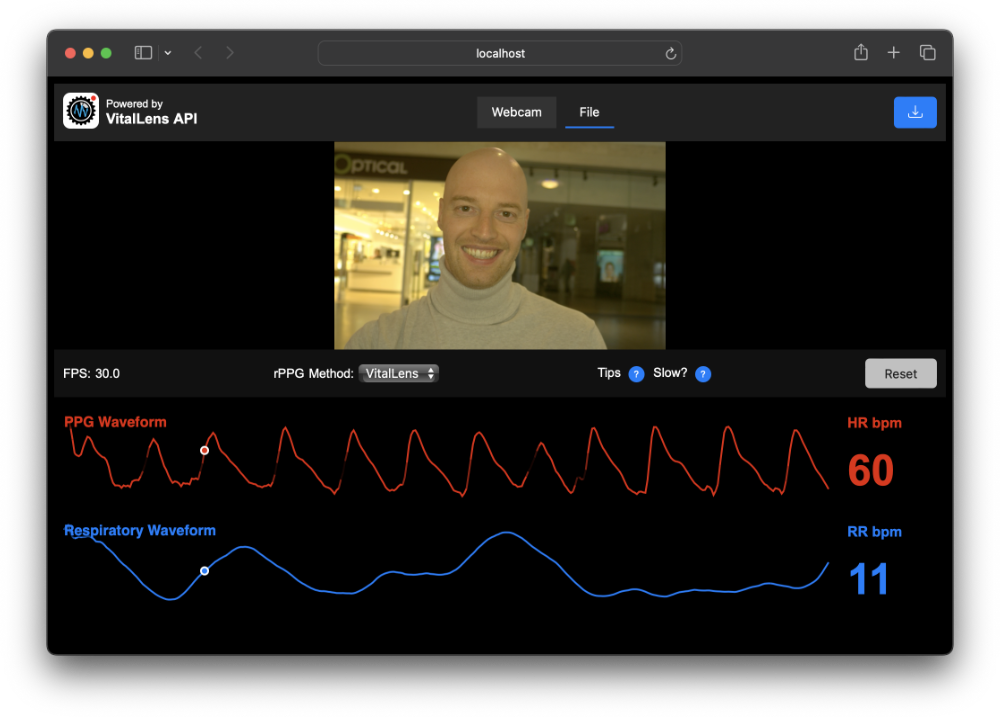Remote video-based vital sign monitoring
Physiological processes such as blood flow and respiration leave behind subtle visual cues. These cues include changes in skin color and upper body movement, which can be picked up by ordinary cameras.
This means that it is possible to monitor vital signs such as heart rate, HRV, and respiratory rate remotely using everyday devices like smartphones.
Frequently asked questions
Remote photoplethysmography (rPPG for short) is a camera-only way of
reading pulse-related colour changes in your face. Each heartbeat
shifts the balance of red and green light reflected by skin; a
neural network tracks those micro-changes frame-by-frame,
cancels motion and lighting swings, and rebuilds the same
photoplethysmogram waveform you'd get from a fingertip sensor.
From that waveform it derives heart rate, HRV, breathing rate and other
vitals in real time. Learn more in our
rPPG explainer article.
In its current public release, the VitalLens model was trained on 1413 subjects across all six Fitzpatrick skin
types. On a large, diverse test benchmark including Vital Videos, it posts
average errors of 1.57 bpm for heart rate, 1.08 bpm for respiratory rate, and 10.18 ms for HRV (SDNN).
Learn more in our technical report paper.
Yes. Training data includes a dedicated Africa set, so Fitzpatrick
types 5-6 see only a small drop in SNR compared with lighter tones.
App: All processing and raw video stay on-device—nothing
leaves your phone.
API: You only upload pre-processed (pixelated & audio-removed) frames; those and the resulting vitals live briefly in server RAM and are deleted immediately per our Terms of Service.
API: You only upload pre-processed (pixelated & audio-removed) frames; those and the resulting vitals live briefly in server RAM and are deleted immediately per our Terms of Service.
What our users say
Featured blog articles
Our mission
Empowering global health through innovative, privacy-centric health monitoring solutions via user-friendly smartphone applications and robust APIs.









